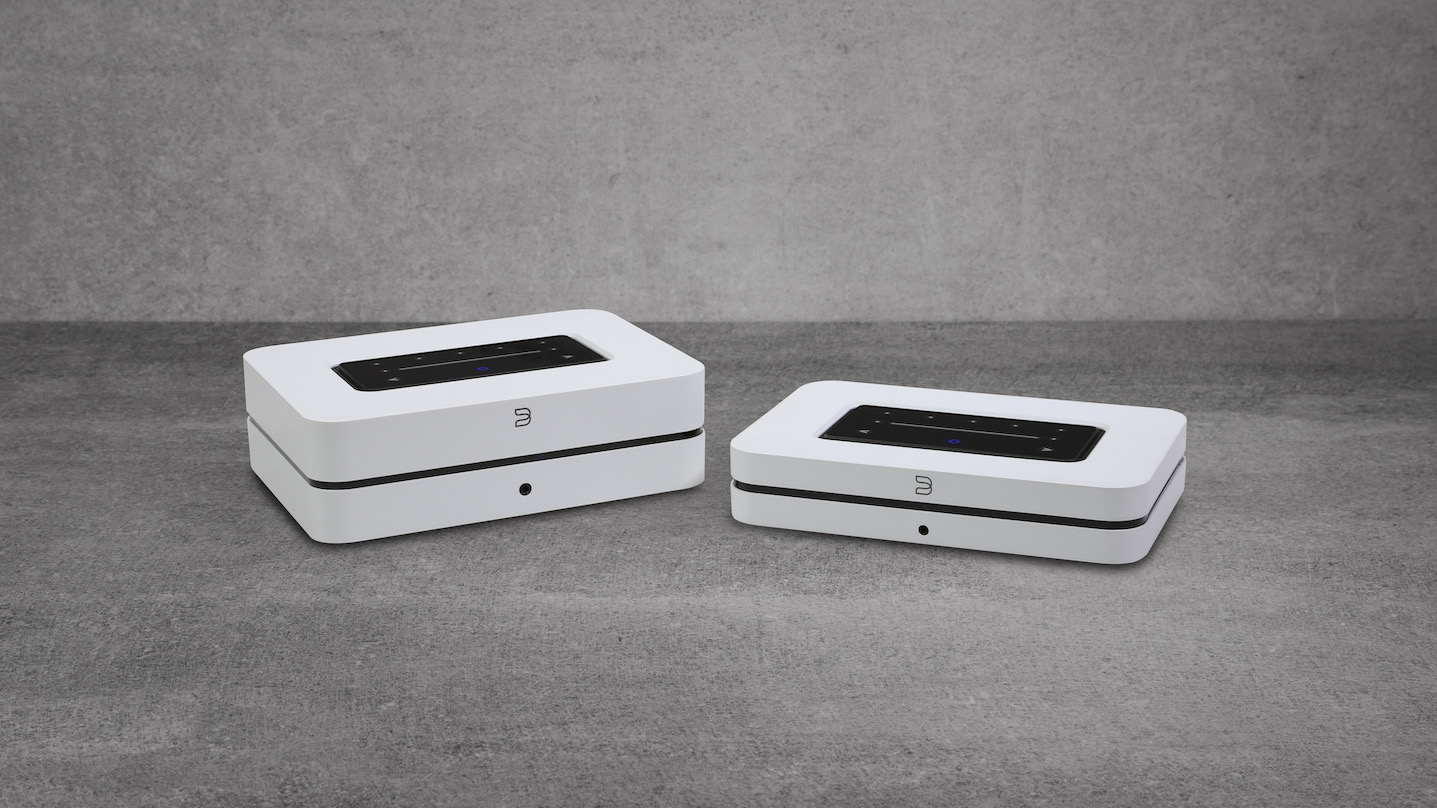New Bluesound Node and Powernode are fittingly well-furnished streamers
New DAC designs, more powerful processors, and touch panel controls with presets

Bluesound's latest Node streamer and Powernode Edge streaming amplifier, the more mature members of the company's multi-room family
(Image credit: Bluesound)Bluesound has refreshed its excellent Node 2i music streamer and Powernode 2i streaming amplifier. The next generation of the What Hi-Fi? Award-winning devices or now boast new DAC designs, more powerful processors, and touch panel controls with presets. They simply carry the original Node and Powernode monikers.
For the uninitiated, the Node is a music streamer that works either as a source in a hi-fi system or with active (or powered) speakers, like the Award-winning Audiolab 6000N Play. The Powernode, meanwhile, has amplification built in and just requires a pair of speakers, like the Award-winning Marantz PM7000N.
The former has a new DAC that can decode both hi-res 24-bit/192kHz and MQA files and feeds coaxial, optical, USB Type-A and, giving it TV system appeal, HDMI eARC inputs. There's also RCA inputs and a 3.5mm headphone jack, plenty of music streaming service support courtesy of wi-fi and Apple AirPlay 2, internet radio and aptx HD Bluetooth (which is two-way, meaning it can wirelessly receive Bluetooth files for playback and send whatever it is playing to Bluetooth headphones or speakers). Naturally, the Node can also work in a multi-room environment with other BluOS kit.
As well as having a touch control panel with presets providing shortcuts to your favourite music, the Node can be voice controlled using voice assistants like Apple Siri, Google Assistant and Amazon Alexa.
The Powernode has a very similar skillset to the Node – all the BluOS streaming features, digital connectivity including HDMI eARC, and MQA support, for example – but with the addition of a built-in amplifier. The amp delivers 80 watts per channel, up from 60 watts on the previous model.
The Bluesound Node costs £549 ($549, about AU$1050) and the Powernode £849 ($899, about AU$1650) – slightly up from the launch prices of the previous-gen models. Both are available to pre-order now for shipping in June.
MORE:
Get the What Hi-Fi? Newsletter
The latest hi-fi, home cinema and tech news, reviews, buying advice and deals, direct to your inbox.
Check out the best multi-room systems
Read our full Bluesound Node 2i and Powernode 2i reviews
Full explainer: Multi-room audio: everything you need to know
What Hi-Fi?, founded in 1976, is the world's leading independent guide to buying and owning hi-fi and home entertainment products. Our comprehensive tests help you buy the very best for your money, with our advice sections giving you step-by-step information on how to get even more from your music and movies. Everything is tested by our dedicated team of in-house reviewers in our custom-built test rooms in London, Reading and Bath. Our coveted five-star rating and Awards are recognised all over the world as the ultimate seal of approval, so you can buy with absolute confidence.
-
esmse Disappointing to see Chromecast built-in is not included. There is support for the google assistant for voice control but without Chromecast you can't add the device to an existing multiroom setup that is based on Chromecast.Reply
I'm interested to hear about any reasoning behind that decision. Earlier it was stated that the Node 2i did not have enough resources for Chromecast but that should not be a showstopper anymore with the new node.
Seems CA and Naim are the only ones capable to create a complete streaming component with Airplay, Chromecast and Roon support. -
Guy4510 I think it is a shame it doesn't appear to support Chromecast as you suggest, however are you fully aware of how Bluesound works as your main streaming solution, especially the APP, which imo is simply best in class. Equally this fully supports MQA, which again imo is the best solution to 'Hi-Res' streaming. Obviously this isn't supported my Naim, which has always puzzled me, so I guess it's hard to find a true 'complete' component, as you suggestReply -
Zwiri First of all, I like the device and certainly the amazing touchpad with the 5 presets.Reply
On the other side, I think BlueSound does not like Google:
1. No support for Chromecast
2. There's no support for YouTube Music although that music service has the best suggestion algorithm in my opinion.
3. Google Assistant integration is also very limited:
-It only works in English (my family speaks Dutch :-( ).
- You cannot use simple language like: "Hey Google, play music in kitchen". You need to use a workaround with specific Blue Voice commands. With Sonos you can use the simple language.
On BluOs: I want to stream TV sound from my NAD T758 V3i BluOS AVR to my Powernode and that is not possible (confirmed by BlueSound). So check the limitations before you consider setting up a BluOS multiroom environment because it is quite expensive.

